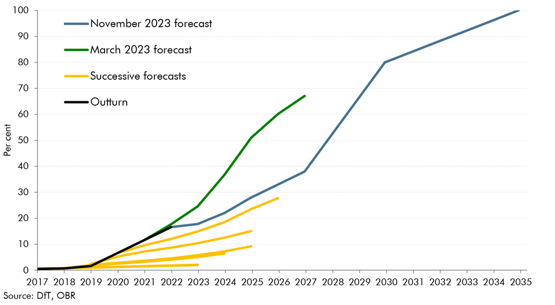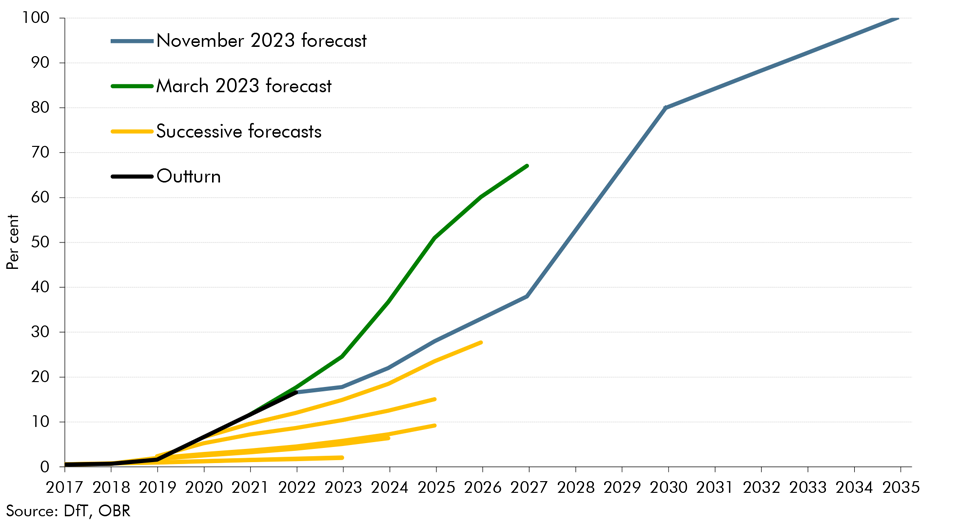The Office for Budget Responsibility (OBR) has significantly reduced its projections for electric vehicle (EV) registrations in the UK, forecasting that higher interest rates and falling fuel prices will slow the consumer transition towards electrification.
According to its economic and fiscal outlook released alongside last week’s Autumn Statement, the national forecaster now anticipates that EVs will represent 18% of sales in 2023, down from the previous estimate of 25%. Additionally, the forecast for 2027 has been cut nearly in half, from 67% to 38%.
The OBR attributes this adjustment to the absence of low-cost EVs, which is expected to decelerate the steep sales growth witnessed in recent years, largely driven by early adopters with higher incomes.
The OBR emphasizes the lower running costs of EVs for consumers who can charge vehicles at home but notes that the cost advantage diminishes, and can even become negative, for EVs charged away from home.
Concerns about the availability of public charging points are also cited as a potential hindrance to adoption. Furthermore, the decline in petrol and diesel prices, though still relatively high compared to the past, contributed to the revised projections.
The main policy driver for EV uptake is now the Zero Emission Vehicle (ZEV) mandate, set to take effect in January 2024 after the Department for Transport (DfT) confirmed in September that the mandate will require 22% of cars and 10% of vans sold by manufacturers to be electric.
The OBR aligns its EV assumptions with the path of the mandate over the forecast horizon, expecting sales to closely adhere to these targets due to flexibilities that allow trading of allowances and borrowing against future allowances in the initial three years of the mandate.
Despite the earlier surge in interest, the OBR cautioned that the recent government announcement of a five-year delay on the ban of new internal combustion engine (ICE) vehicle sales, from 2030 to 2035, might lead some consumers to postpone the transition to EVs.
Additionally, the OBR's fiscal outlook highlighted the challenges in narrowing the price gap between EVs and traditional cars, especially for purchasers using car finance, as interest rates are higher than anticipated.
Ian Plummer, commercial director of Auto Trader, said: “We know that consumers need more incentives to make the switch, they need more affordable cars, more charging points and confidence in running costs, which includes related taxes.”




















Login to comment
Comments
No comments have been made yet.